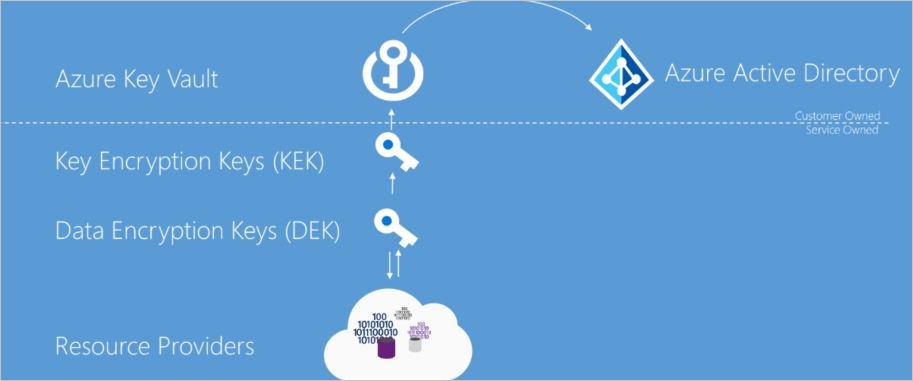The General Data Protection Regulation (GDPR) is a comprehensive data protection framework aimed at safeguarding the personal information of European Union (EU) citizens. It is built upon key principles such as transparency, fairness, and accountability. Its primary objectives include protecting the rights and freedoms of individuals regarding their personal data.
A GDPR compliance checklist applies not only to EU-based organizations but also to any entity processing EU citizens’ personal data. It has a wide scope, covering various data processing activities.
Non-compliance is also often accompanied by legal action and hefty fines of EUR 20 Million or 4% of their global turnover – whichever is greater – underlining how important data protection is within EU laws. Thus, Compliance with GDPR is not just a legal mandate but also a fundamental step towards building trust with your customer base and partners.
Action Points
- GDPR safeguards EU citizens’ personal information, emphasizing transparency, fairness, and trust-building.
- A GDPR compliance checklist simplifies adherence to complex regulations by breaking them down into actionable steps and controls, customizable to an organization’s needs.
- The 9-step GDPR checklist covers data understanding, compliance documentation, security controls, and more.
- GDPR controls ensure compliance and data security through measures like access controls, encryption, DPIAs, and network security.
What is GDPR Compliance Checklist?
The GDPR compliance checklist is a set of guidelines and requirements that organizations need to follow to ensure compliance with the GDPR. It serves as a guide to help organizations assess and implement the necessary measures, policies, and procedures to protect the privacy rights of individuals and ensure data security. It breaks down the complex GDPR requirements into actionable steps and controls, making compliance more manageable.
9-Step GDPR Compliance Checklist
1. Understand and Document Your Data:
Organizations should know the data they hold and document it to show compliance. This includes identifying the types of personal data they collect, where it is stored, who has access to it, and how it is used. Organizations should also document their data processing activities and be prepared to show that list to regulators upon request. This is especially important for organizations that have at least 250 employees or conduct higher-risk data processing.
2. Keep Privacy Policy Updated:
Organizations should keep their privacy policy updated to reflect GDPR requirements. This includes providing clear and concise information about the personal data they collect, how it is used, who it is shared with, and how individuals can exercise their rights under GDPR.
What is GDPR Privacy Policy?
A GDPR privacy policy is a document that outlines how an organization collects, uses, stores, and discloses personal data in compliance with GDPR regulations. The privacy policy as such, should be clear, concise, and easily accessible to individuals whose personal data is being collected. Some key points to consider in your GDPR privacy policy checklist include:
- Identify the data to be collected as well as the sources. Maintain a clear and comprehensive data inventory to track the same.
- Clarify the purpose of data collection including usage and shareability if any.
- Explain the measures taken to protect the data and medium of notification in case of a breach.
- Include the contact information for the concerned Data Protection Officer or DPO.
- Outline the user’s rights under GDPR such as the right to access their personal data and the right to object to the processing of their data.
- Conduct regular data privacy audits to ensure you are complying with GDPR regulations.
3. Appoint a Data Protection Officer (DPO):
Organizations should appoint a DPO to ensure GDPR compliance. This is required for organizations that process large amounts of personal data or process sensitive data on a regular basis. The DPO should have expertise in data protection and be independent in their role.
4. Maintain a GDPR Compliance Diary:
Organizations should maintain a GDPR compliance diary to document their compliance efforts. This includes documenting their data processing activities, privacy impact assessments, data breaches, and any other GDPR-related incidents. The diary should be kept up-to-date and be available for review by regulators upon request.
5. Assess Data Processing Activities:
Organizations should evaluate their data processing activities to ensure GDPR compliance. This includes identifying the legal basis for processing personal data, obtaining valid consent, and ensuring that data processing activities are necessary and proportionate.
GDPR controls are a set of measures and procedures that organizations must implement to ensure the protection of personal data and compliance with GDPR regulations. Some GDPR data controls include:
A. Access Controls:
Implement authentication and authorization mechanisms, such as passwords, two-factor authentication, and role-based access control.
B. Encryption:
Encrypt personal data both in transit and at rest to add an extra layer of protection.

C. Data Minimization:
Avoid collecting unnecessary personal data and delete or anonymize personal data when no longer needed.
D. Data Retention:
Establish data retention policies that specify how long personal data will be kept and when it will be deleted.
E. Data Portability:
Adopt measures to facilitate data portability, such as providing data in a commonly used format to align with GDPR compliance checklist.
F. Data Accuracy:
Ensure that personal data is accurate and up-to-date, through data validation checks and providing individuals with editing options.
G. Data Protection Impact Assessments:
Organizations should conduct DPIAs (Data Protection Impact Assessments) for high-risk data processing activities, such as processing sensitive personal data.
H. Incident Plans:
Draft detailed incident response plans to ensure a quick and effective response.
I. Vendor Management:
Ensure all vendors are GDPR compliant by conducting due diligence checks and including GDPR compliance requirements in contracts.
6. Conduct Privacy Impact Assessments (PIAs):
Organizations should conduct PIAs to identify and mitigate privacy risks. PIAs are required for organizations that process large amounts of personal data or process sensitive data on a regular basis. The PIA should identify potential customer privacy risks, assess the likelihood and severity of those risks, and identify measures to mitigate those risks.
7. Establish Personal Data Collection and Consent Procedures:
Organizations should establish procedures for personal data collection and consent management. This includes obtaining valid consent for data processing activities, providing clear and concise information about the personal data being collected, and allowing individuals to withdraw their consent at any time.
8. Implement Robust Data Security Controls:
Organizations should implement data security controls such as access controls, encryption, and incident response. This includes ensuring that personal data is protected against unauthorized access, accidental loss, or destruction. Organizations should also have procedures in place to detect, investigate, and report data breaches.
9. Train Your Staff in GDPR Principles:
Organizations should train their staff in the GDPR requirements list and principles to ensure compliance. This includes providing training on data protection, privacy, and security, as well as ensuring that staff are aware of their responsibilities under GDPR. Organizations should also have procedures in place to monitor staff compliance and take corrective action when necessary.
What are GDPR Security Controls?
GDPR security controls are a set of measures and procedures that organizations must implement to ensure the protection of personal data and compliance with GDPR regulations. These controls are designed to ensure that personal data is processed lawfully, fairly, and transparently and that appropriate security measures are in place to protect against unauthorized or unlawful processing, accidental loss, destruction, or damage.
GDPR Security Controls Checklist:
1. Network Security:
Implement firewalls, intrusion detection and prevention systems, and other security measures to protect your network infrastructure from unauthorized access, attacks, and other security threats.
2. Physical Security:
Leverage access controls, surveillance systems, and similar security measures to protect the physical infrastructure that houses personal data.
3. Security Monitoring:
Implement security monitoring tools and processes to detect and respond to security incidents in real-time.
4. Third-party Risk Management:
Adopt measures to ensure that all third parties are GDPR compliant, such as conducting due diligence checks and including GDPR compliance requirements in vendor contracts.
How can Astra help?
Astra is a leading SaaS company that specializes in providing innovative web security solutions. With a track record of stopping over 50 million threats and purging 20 million malicious files each month, their zero false positive approach provides peace of mind to businesses and website owners worldwide.
They blend automation and manual expertise to run 8000+ tests and compliance checks, ensuring complete safety, irrespective of the threat and attack location.
Their sophisticated technology and interactive cybersecurity environment, featuring real-time expert assistance, streamline security procedures while showcasing industry certifications to build trust with clients and colleagues.
Conclusion
In summary, GDPR compliance is not merely a legal obligation but a promise to individuals that their personal data will be treated with respect and vigilance. It’s an opportunity to build trust with customers and partners by demonstrating a commitment to safeguarding personal data.
The GDPR compliance checklist simplifies the intricate regulatory landscape, offering a structured path to compliance, ensuring comprehensive coverage, customization, risk mitigation, documentation, training, and a commitment to continuous improvement.
Going forward, create a plan that not only meets GDPR compliance standards but sets an industry benchmark in protecting individual rights in the digital era.
FAQs
What are the 4 important principles of GDPR?
The four principles of GDPR are transparency, fairness, lawfulness, and accountability. Transparency requires clear communication about data processing. Fairness demands equitable treatment of individuals. Lawfulness dictates that data processing must have a legal basis. Accountability obliges organizations to demonstrate compliance with GDPR through documentation.
What are the 2 elements of GDPR?
GDPR consists of two primary elements: data protection principles governing the fair and accountable handling of data, and individual rights that grant users control over personal data including access, rectification, and erasure rights, safeguarding privacy and data rights.
Who regulates GDPR?
The GDPR is regulated and enforced by the individual national data protection authorities in the European Union. Each EU member has its own authority responsible for overseeing and enforcing compliance with the GDPR regulations. These authorities then collaborate through the European Data Board Protection to ensure uniform application and interpretation.
















